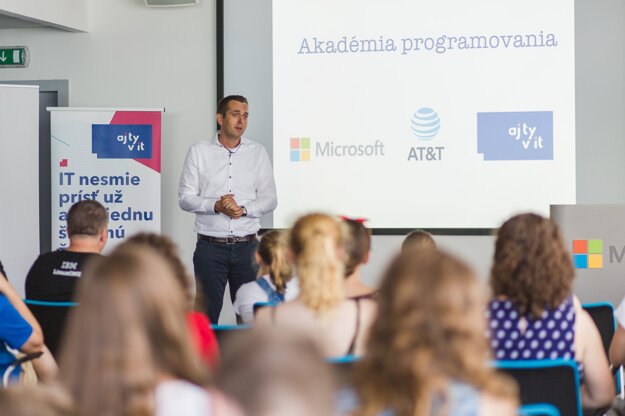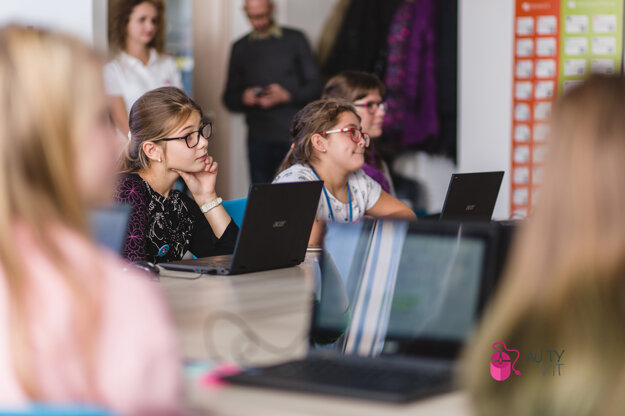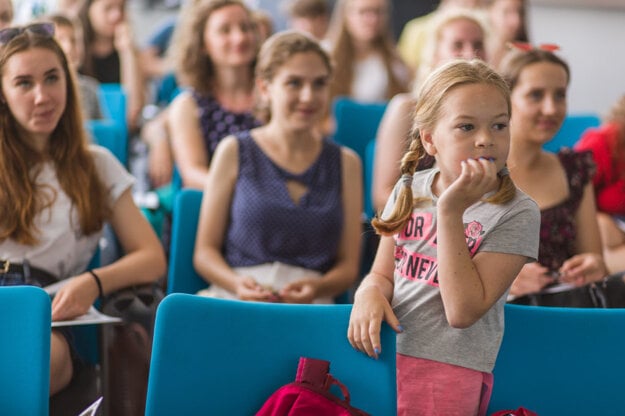We therefore have firm ties with the local economy and local innovations. Over the last 25 years, we have built a partner network in more than 880 companies in Slovakia that contribute to the development of individual regions. We have invested more than one million euros in education, trained 19,000 teachers, and in the past year alone, we supported 280 start-ups in the Czech Republic and in Slovakia, and more than 1,100 non-profit organisations in Slovakia.
“At Microsoft, we do not perceive social responsibility only as a complement to our business strategy, but as an integral part of it. We strive to ensure that our technology not only helps our customers and business partners succeed, but also maximises the efficiency of our employees' work and enables them to reconcile their work and personal responsibilities. I believe that our digital culture, based on open communication, trust and respect, can also inspire other companies in the Slovak market.” said Rudolf Urbánek, General Manager of Microsoft Czech Republic and Slovakia.
 CEO of Microsoft in the Czech Republic and Slovakia, Rudolf Urbánek, giving a presentation about coding to schoolchildren at the Academy of Programming
CEO of Microsoft in the Czech Republic and Slovakia, Rudolf Urbánek, giving a presentation about coding to schoolchildren at the Academy of ProgrammingWe realise our responsibility towards society. We want to remain a responsible partner for Slovakia, from the government to citizens, and we would like to contribute to making Slovakia one of the most innovative digital economies in the world. How is Slovakia doing on this path towards digitisation so far? And how is Microsoft helping the country?
We help Slovakia succeed in the digital era
The Digital Skills survey in Europe has revealed that more than half of respondents in Slovakia have only basic skills, and 20% of them even admit that they have no digital skills and do not use the Internet. We want to help Slovakia change this.
Our role as a responsible corporation is to help Slovakia in the areas in which we are familiar and can offer unique added value. Therefore, we focus on the development of digital skills of young people, the modernisation of education and entrepreneurship, cooperation in the field of cyber security and support for non-profit organisations and entrepreneurs.
Digital skills are the key to success for young people
According to the IT Association of Slovakia, the country is currently lacking 13,000 IT specialists; this number could rise to 20,000 in 2020. However, statistics do not only point to the lack of programmers. Digital skills will become more and more desirable in all sectors of the economy and across professions. Our goal is not to create a skilled programmer from every skilled person, but to work together to teach basic digital skills to everyone and to allow everyone to achieve success, in any position and in any profession they choose. Dealing with this deficit can only be achieved through active cooperation between the public and private sectors, educational institutions and non-profit organisations. At Microsoft, we are aware of this responsibility and are committed to this.

One of many examples is the Hour of Code – an annual event designed to give children their first programming experience and eliminate the prejudice that programing is complex and boring. In the past year alone, teachers and children from 118 primary and secondary schools have joined the virtual Hour of Code in Slovakia.
In order to inspire Slovak high school students to pursue a career in IT, we launched four years ago the Student training center (ŠTC). Dozens of graduates completed their study, gaining valuable knowledge and skills not only in IT, such as the basics of programming, graphics, and network administration, but also soft skills, such as communication, lecturing and conducting business meetings to help them in further study or to start a career. Students learn this information through online webinars, seminars, workshops, lectures and in particular practical projects and meetings with inspirational personalities.
Boosting girls’ self-confidence in technical fields
The lack of technical specialists on the labour market can be helped by maintaining IT talents among girls and young ladies. We included Slovakia among 12 countries where the Why European girls do not study sciences? survey was conducted to find out why girls are losing interest in technical and natural science fields of study. The results revealed that when girls between the ages of thirteen and sixteen are choosing a secondary school, their interest in ITfalls well below the European average.

In order to increase the interest of girls in digital technology, we have several activities in Slovakia. Two years ago, together with the non-profit organisation “You Too in IT” (Aj ty v IT), we launched the project Academy of Programming. The aim is to inspire high school students to study and have a career in IT, and to increase their interest in this sector in an interactive way, when for one day they can be a programmer under the guidance of a lecturer. In 2018 alone, 120 teachers and 140 girls from primary and secondary schools in Slovakia attended our workshops.







